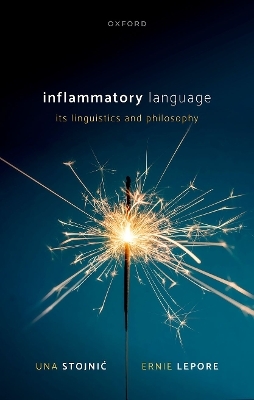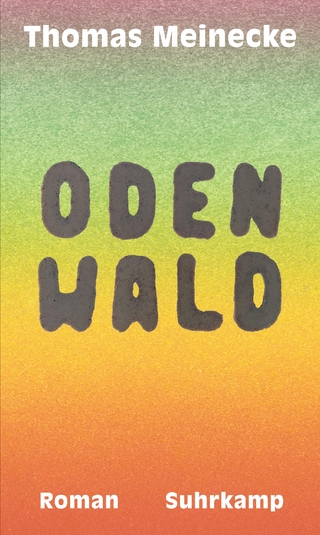
Inflammatory Language
Oxford University Press (Verlag)
978-0-19-892043-4 (ISBN)
- Noch nicht erschienen (ca. März 2025)
- Versandkostenfrei
- Auch auf Rechnung
- Artikel merken
It's a platitude that words can harm. But some words are more prone to do so than others--they are pejorative by design. Among those, slurs are particularly inflammatory: these are the epithets that derogate purely on the basis of group-membership, for example, on the basis of race, ethnicity, origin, religion, gender, sexual orientation, or ideology. Inflammatory Language is in large part about pejoratives, but mainly about this subclass of particularly inflammatory words, with a characteristic offensive sting. Slurs are powerful linguistic weapons: slurring someone constitutes a transgression more severe than an insult; it is an act of bigotry, not mere rudeness, derogating the entire group at once. Moreover, the offensive effect of a slur is surprisingly sticky, as even mere mentionings of slurs carry the risk of triggering their sting, so much so that such tokenings often have a full-on taboo status, subject to media censorship, sometimes even legislation.
What is the source of this characteristic offensive sting that makes slurs such powerful linguistic weapons? A natural--and predominant--assumption is that it's some aspect of their meaning, semantically encoded or pragmatically conveyed. Consequently, most efforts at understanding slurs have been attempts to characterize their meanings and how they compose with those of other expressions, in a way that generates the offensive sting. However, even those who reject this majority position trace the offensive sting down to slurring words, arguing that it is their taboo status, or offensive tone, that explains their sting. Una Stojnić and Ernie Lepore argue this is a mistake. The distinctive pejorative effect of slurs, their characteristic sting, is not a matter of meaning, nor even language. Rather it is akin to the sting triggered by offensive gestures, symbols, or imagery, in that it is constituted by associations attached to and triggered by slurs' articulatory form--their typical pronunciation or spelling.
Ernie Lepore is Board of Governors Professor of Philosophy at Rutgers University. He has authored numerous books and papers in the philosophy of language, philosophical logic, metaphysics, and philosophy of mind, including recently Imagination and Convention (with Matthew Stone, OUP, 2015), and Liberating Content (OUP, 2016) with Herman Cappelen. He is the co-editor (with David Sosa) of Oxford Studies in Philosophy of Language, and (with Una Stojnić) of The Oxford Handbook of Contemporary Philosophy of Language (OUP, forthcoming). Una Stojnić is Assistant Professor of Philosophy at the Department of Philosophy, Princeton University. Prior to joining Princeton, she was Assistant Professor in the Department of Philosophy at Columbia University, a Bersoff assistant professor and faculty fellow in Philosophy at NYU, and a research fellow in Philosophy at ANU. She earned her PhD in Philosophy and a Certificate in Cognitive Science from Rutgers University in 2016. She is the author of Context and Coherence: The Logic of Grammar and Prominence (OUP, 2021), and is the co-editor (with Ernie Lepore) of The Oxford Handbook of Contemporary Philosophy of Language (OUP, forthcoming).
| Erscheint lt. Verlag | 25.3.2025 |
|---|---|
| Verlagsort | Oxford |
| Sprache | englisch |
| Maße | 138 x 216 mm |
| Themenwelt | Geisteswissenschaften ► Philosophie ► Sprachphilosophie |
| Geisteswissenschaften ► Sprach- / Literaturwissenschaft ► Sprachwissenschaft | |
| ISBN-10 | 0-19-892043-1 / 0198920431 |
| ISBN-13 | 978-0-19-892043-4 / 9780198920434 |
| Zustand | Neuware |
| Informationen gemäß Produktsicherheitsverordnung (GPSR) | |
| Haben Sie eine Frage zum Produkt? |
aus dem Bereich


